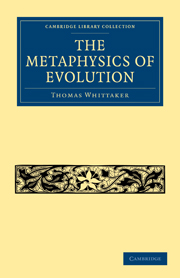Book contents
THE MUSICAL AND THE PICTURESQUE ELEMENTS IN POETRY
Published online by Cambridge University Press: 07 September 2010
Summary
Ἀπὸ δὲ πάσης τῆς ποιήσεως ἓν μόριον ἀϕορισθὲν τὸ περὶ τὴν μονσικὴν καὶ τὰ μέτρα τῷ τοῦ ὅλου ὀνόματι προσαγορεύεται. ποίησις γὰρ τοῦτο μόνον καλεῖται, καὶ οἱ ἔχοντες τοῦτο τὸ μόριον τῆς ποιήσεως ποιηταί.
—Plato.When it is said that the basis of poetry is imagination, much depends on what is meant by the term. Does it mean the creative faculty—that is, above all, the power of representing character in action; or does it mean simply the power of visualising? In the first sense? it truly defines the material of the greatest poetry; in the second sense, it describes one of the formal elements in poetic art generally. The question may be asked about imagination in the first sense, whether it is sufficient, apart from all formal qualities, to constitute a poem; and, about imagination in the second sense, whether it comes first among formal qualities, or whether there is another, namely, metrical quality, that takes a higher place. My present object is to discuss the second of these questions.
Upon the first question, the opinion may be hazarded that if a work of creative imagination in prose is ever to be regarded as properly a poem, it must be by suffusion with a kind of feeling that would naturally find its expression in metre. The perception of fatality in the development of interacting characters to an inevitable event, for example, brings with it the unity of feeling that is characteristic of tragedy. Accidentally, such a work may be in prose and not in verse; but it is in verse that the dominant feelings of “terror and pity” tend to express themselves.
- Type
- Chapter
- Information
- The Metaphysics of Evolution , pp. 79 - 92Publisher: Cambridge University PressPrint publication year: 2009First published in: 1928



